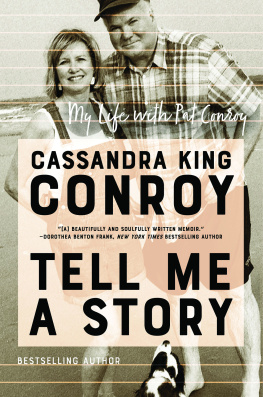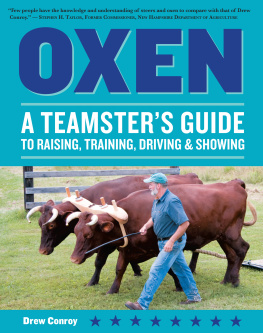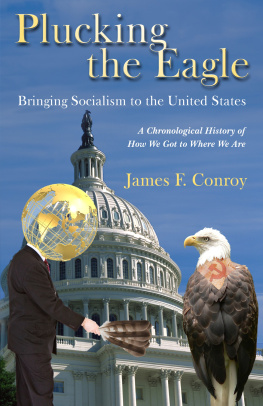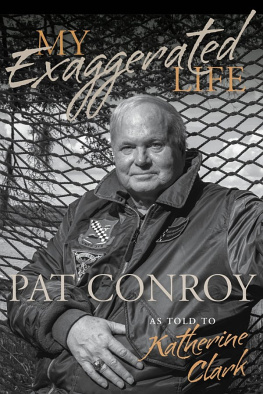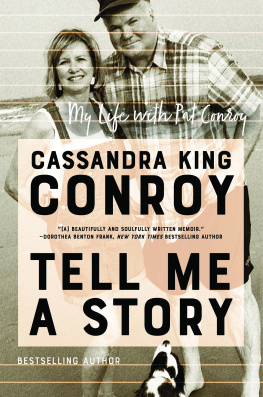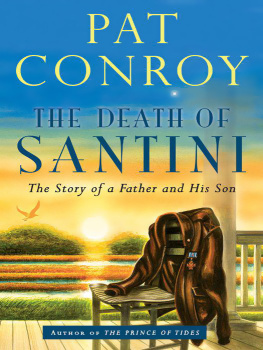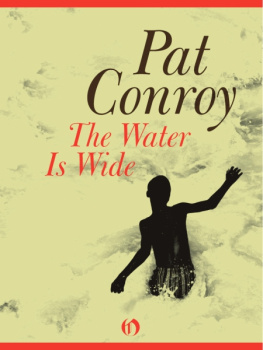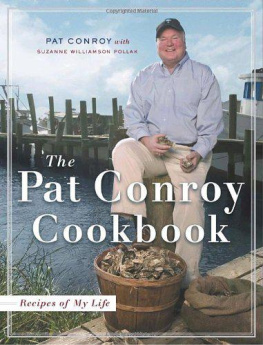Contents
To Patrick
I dont remember driving home, but I must have. My car, which had been in the hospital parking lot for most of the day, was now in the garage. It was January, but I wasnt cold as I walked from my car to the front door. Or maybe I was. I have no memory of going from car to house either. It had been a horrific day that started with an ambulance taking my husband, half delirious with pain, to our local hospital, and it had ended with a devastating diagnosis. Now, I was back in the safety of our house.
But not for long. I had come home to pack our suitcases for another ambulance drive. This one would be taking my husband to Atlanta, five hours away, even though a winter storm was heading that way as well. Itd be a race to see who got there first, the ambulance or the snow. Later Id learn that the storm easily won.
But I wasnt thinking of snow and the hazardous drive, except somewhere in a corner of my mind. I was trying hard not to think anything at all. If I stopped long enough to think, I wasnt sure what would happen. I could lose it, fall to pieces. That rarely happened to me, but this was different. Id always been stoic to a fault. Stiff upper lip and all that crap. Never let them see you sweat. I had a tendency to push the pain down so far that the surface remained calm and collected. Thankfully, I was numb as I entered the house in the late afternoon light of a winter sun. The shock of my husbands diagnosis had hit me hard, like a splat of cold water that takes your breath away. It shouldnt have. I shouldve seen it coming. Maybe I knew all along but wouldnt let myself acknowledge it, but it didnt feel that way. It felt like Id been blindsided, slammed by the proverbial Mack truck.
The ER doctor had been kind. He was from New York originally, he told us, and was still adjusting to the South. Our family doctor, with the fabulous Dickensian name Lucius Laffitte, had arrived soon after his office hours. Dr. Laffittes familiar presence immediately comforted me, or would have, if comfort had been possible. It wasnt as if I hadnt known why the ER doctor had ordered the MRI. Earlier that week, my husbands CAT scan had shown something suspicious in the area of the pancreas. Pancreatitis? Id asked the gastro doctor. My voice mustve held a hopeful desperation that hed heard too many times in his profession. He had not been able to reassure me, though hed tried, avoiding eye contact.
Both the ER doctor and Dr. Laffitte had been on the phone since getting the results of the MRI. It had been the ER doctor who had delivered the bad news as our grim-faced doctor stood by his side. There was a growth on the pancreas, along with numerous spots on the liver. A growth? I echoed in disbelief. The gastro doctor had mentioned it only as a possibility, the worst-case scenario.
Whats a pancreas? my husband, Pat, asked. A large man with shoulders the width of the bed his IV was hooked up to, he and the bed took up most of the space in the crowded ER cubicle. His question wasnt facetious; it was just Pat. He took little interest in matters of health. Or rather, hed only developed an interest in the past few years, after a scare had forced a major lifestyle change. For three years, hed been living healthier than any of us ever thought he could be. Hed stopped drinking, was eating well, exercising every day, losing weight, and looking bright-eyed and happy. And now this. The irony was too much to take in. Later Pat told the doctors that healthy living would kill you quicker than anything.
As doctors are prone to do, the ER guy began to sketch on a pad, reducing our fears to a stick figure with strange little squiggles here and there. Pat and I listened intently as the next gruesome procedure, a biopsy, was laid out. Dr. Laffitte left to begin the calls. Beaufort Memorial, where we were, didnt do liver biopsies. Even if they did, there were no rooms here. It was January, and everyone in South Carolina was apparently in the hospital. No beds were available in nearby Charleston at the university medical complex either. At least we had a cubicle here, we were told. In Charleston, patients were lined up on cots in the hallways of the ER. Although Pat was too ill to be sent home, wed spent most of the day taking up space now needed for other emergencies. It was a bad time to be sick.
After what seemed like forever, an ambulance was lined up to transport Pat to Emory Hospital in Atlanta. His youngest daughter worked there and had arranged everything after my frantic call for help. As all things Conroy tend to be, the whole drama quickly turned into a comedy of errors. A rare snowstorm was approaching Atlanta fast. The South dealt with snow by closing everything down, even major highways. No local ambulance drivers would go to Atlanta with snow coming. Plus it was late afternoon, with the unwelcome prospect of driving in the dark if something wasnt done soon.
Suddenly a bearded giant of an ambulance driver showed up with a stretcher about half the size of the ER bed that Pat had been on for hours. Grinning broadly, he told us he had just moved here from Michigan and wasnt afraid of a little snow. Southerners were nuts, he added, and I wanted to hug his neck for such an astute observation. When I left the hospital to get our suitcases, I knew Pat would be in good hands.
Or at least he should be with the capable-looking ambulance driver. The friends of ours whom Id left with Pat were another matter altogether. Bernie, and then another friend, Mina, had arrived about the same time after Id called family and friends to report what was going on. Both of them were shaky with apprehension but trying to put up a good front. They were a study in contrasts. Mina, a lithe but muscular Japanese woman, was Pats personal trainer, and Bernie, a stocky little Jewish guy, his best friend since high school. Mina was stern and serious and business-like while Bernie had been, and remained at age seventy, the class clown.
Poor Pat, I thought as Bernie came bustling in cracking jokes, determined to make him laugh. And even as sick as Pat was, it worked. His mood lightened as though the words liver biopsy and mass on pancreas had never been spoken. Mina pushed me firmly out the door and told me to go home and get the suitcase. Mister Pat, as she called him in her broken English, would be fine until I got back. She could massage his shoulders and make him feel better. It was going to be all right, Miss Cassandra. I was not to worry. Worry was very bad for you.
At home, my numbness carried me through the packing. It was hard to imagine snow as I stared blankly into the chest of drawers where our sweaters were. I didnt even own a coat; the winters were so mild in the Lowcountry. Shawls or light wraps were sufficient. Pat had a jacket, thankfully, hanging in the downstairs closet. I couldnt remember what hed worn when the ambulance came that morning. Did he even have on shoes? I couldnt remember anything. Id catch myself standing with a piece of clothing in my hand, staring into space, then have to literally shake myself to get back to the task at hand. I have no idea what I packed.
I carried our two overnight bags downstairs and set them by the door. Then I wondered if Id packed enough. Surely wed be home in a day or two! But the weather was supposed to change, and if we ended up staying longer wed need different clothes. Id heard folks at the hospital talking about it. First the freak snowstorm, then in a couple of days the weather would be almost seventy. On top of everything else, global warming was sending us a message to ignore at our own peril.
I stood by the front door with my hand on the doorknob to have what felt like one last look at the house that Pat and I loved so fiercely. In April, itd be four years since we moved into this cozy home perched on a bluff overlooking a tidal creek. Our lives had been so peaceful since then, despite the usual troubles that all of us face as we make our way through the perilous journey of life. Within the span of three years, Id lost both my father and my youngest sister, who had also been my dearest friend. I couldnt bear to lose anyone else. The thought terrified me, and I turned quickly to go. Neither could I stand to be away from Pat for more than a minute. It was crazy, as though my being there would change the outcome of anything, but I couldnt help myself. Id only been gone a few minutes but was panicky at the thought that they might take him away before I got back to the hospital.

